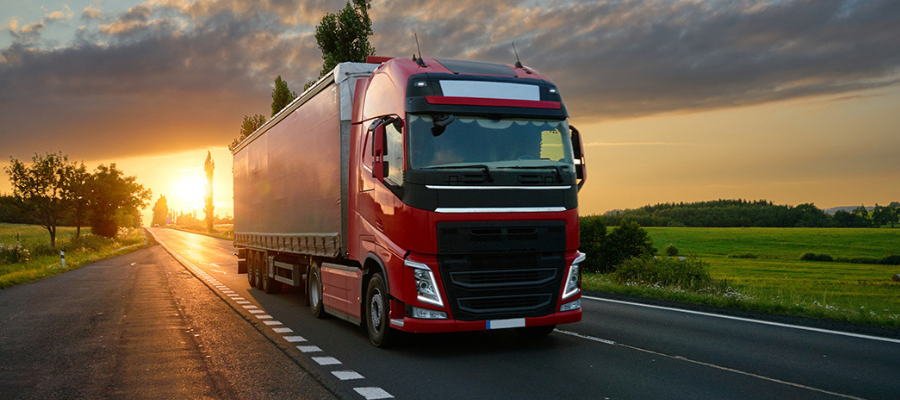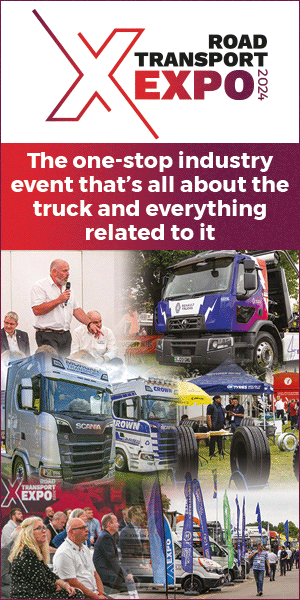🕒 Article read time: 2 minutes
Logistics UK reacts to Scotland HGV Zero emission task force

Senior leaders from Scotland’s HGV industry have developed a set of actions to help the sector transition to net zero.
The HGV Decarbonisation Pathway is the result of 18 months of work by the Zero Emission Truck Taskforce and featured representatives from truck manufacturers, government, unions, and the finance, energy, haulage and logistics sectors, including Logistics UK which led a working group considering energy infrastructure requirements.
The pathway sets out the four key challenges posed by a move to zero-emission trucks, and how to address these through energy infrastructure, financial models, confidence in technological and commercial change, and workforce skills.
“The road to net zero is complex and will take continued collaboration between many industries and sectors to find the solutions that lead to meeting the net zero targets,” says Logistics UK’s Senior Policy Manager, Alexandra Herdman. “This HGV Decarbonisation Pathway is a great example of what can be achieved when expertise is shared.”
Scottish Government Transport Secretary Fiona Hyslop, launched the pathway during a keynote address to the Net Zero Scotland Projects conference. She said: “This partnership with the road haulage, manufacturing, energy, government, union and commercial finance sectors is absolutely key to accelerating the transition towards zero emission trucks.
“Scotland’s economy – and society as a whole – relies on goods being moved with speed and efficiency, but these freight movements emit substantial greenhouse gases. We have worked collectively to understand and address the hurdles to transition.”
The Zero Emission Truck Taskforce was convened in May 2022, and has met regularly since, studying background papers, including developing business models which draw in private investment and enable operators to avoid high initial investment costs, building a shared understanding of the challenges and opportunities across each of the sectors involved.
Published On: 28/03/2024 16:00:00
Comments Section
If you are a Logistics UK member login to add comments.
News In Brief
Operators turn to TIR system amid Red Sea crisis
Major logistics operators have opted for the TIR system to ensure that goods flow smoothly between East Asia, the Middle East and Europe.
In recent weeks, major transport companies have bypassed the Red Sea by opting for ground alternatives through the Middle East and Gulf Cooperation Council (GCC) region – rather than going around the southern tip of Africa. With these strategic shifts in transport corridors, operators have increased the value of their services with the efficiency and security offered by TIR.
The seaports of Sohar and Salalah (Oman) and Jeddah and Dammam (Saudi Arabia) have served as the main ports of arrival. Goods are then transported via trucks across the region before shifting again to a maritime leg and continuing their journeys.
The TIR system enables goods to be shipped from a country of origin to a country of destination in sealed load compartments that are controlled by customs via a multilateral, mutually recognised system. TIR streamlines procedures at borders, reducing the administrative burden for customs authorities and transport and logistics companies. It cuts border waiting times significantly, saving time and money.

Latest articles
RTX is back!
Award-winning Road Transport Expo (RTX) is back this summer and a diary must-attend for anybody involved in the road haulage sector.
Read time: 2 minutes
View article
RIA releases ambitious blueprint for net zero railway by 2050
The Railway Industry Association (RIA) has released an ambitious blueprint titled 'Delivering a Lower Cost, Higher Performing Net Zero Railway by 2050'.
Read time: 2 minutes
View article
Mercedes-Benz to pair eSprinter vans with e-cargo bike
A new pilot program aimed at making last mile deliveries greener has been initiated by Mercedes Benz.
The eSprinter effectively becomes a micro-depot with the electric van’s cargo being offloaded onto an ONO electric cargo bike which then completes the last-mile deliveries
Read time: 2 minutes
View article